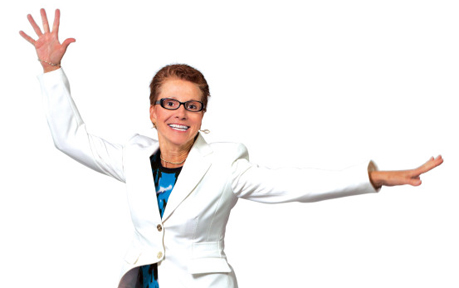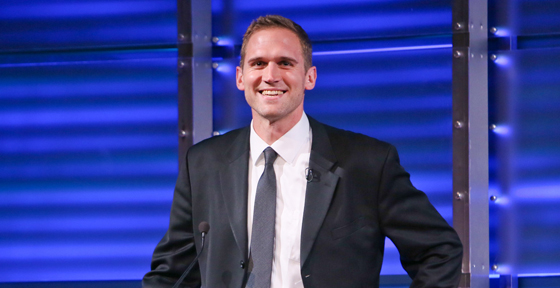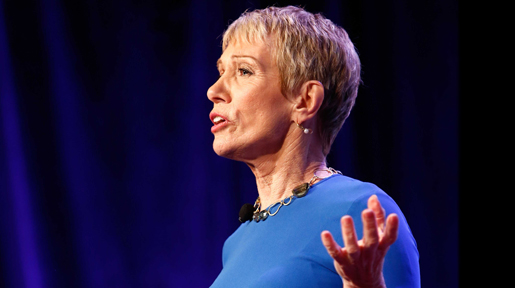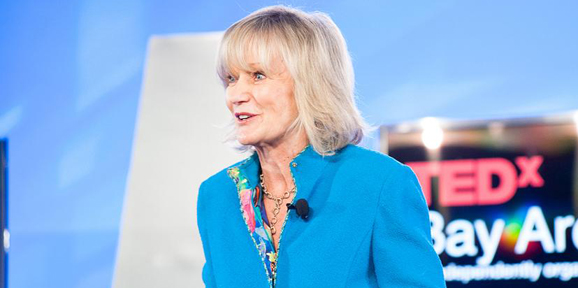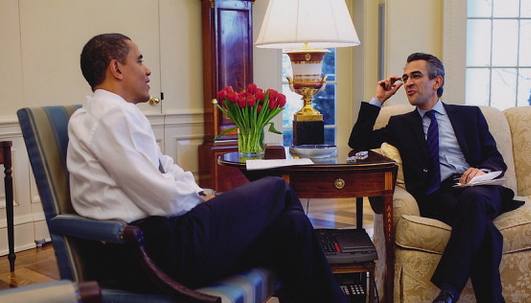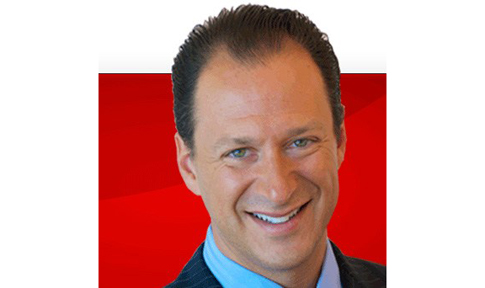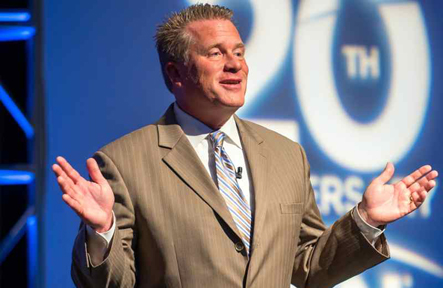
Leadership and Building Rapport with Chris Widener
| What I learned is that your personality doesn’t define your success. Your success is defined by your skill level, how you master those skills, and how you develop and maintain relationships. | |
| |
 | You’ve had two amazing mentors during your career: Jim Rohn and Zig Ziglar. How did you meet these two legendary speakers and what are the most important lessons they taught you? |
 | I was ghostwriting for John Maxwell when Jim Rohn’s office called to see if I would write The Jim Rohn One-Year Success Plan. I told them that I wanted to collaborate with Jim on the project, so I came on board. From there, I created a wonderful relationship with Jim and his team. We wrote the book Twelve Pillars of Success together, and he helped me create my professional speaking business.
In the 1990s, I had a small publishing company that I grew into Made for Success, selling hundreds of thousands of personal development programs through large retailers like Costco, Sam’s Club, Wal-Mart, Target and Barnes and Noble. Zig Ziglar was the most popular expert in the program. I also had a television show in Dallas where I interviewed some of the top business achievers and thought leaders of our time. Zig’s team wanted him to do a show called True Performance, and he personally chose me to co-host the show with him. From there, we developed our friendship. Knowing and working with both Jim and Zig was such a privilege. And through the years, they both taught me incredible lessons. The one lesson that fascinates me the most is that although both of these men were incredibly successful, they had such different personalities. Zig was a gregarious extravert, while Jim was a quiet introvert. What I learned is that your personality doesn’t define your success. Your success is defined by your skill level, how you master those skills, and how you develop and maintain relationships. |
 | Some people seem to have a natural ability to influence those around them. What do these people do differently that enables them to connect so easily to others? |
 | Some people have a natural ability to build rapport quickly. And while some level of influence might come from your innate personality, that extroverted personality is not a prerequisite to influencing others. Anyone can learn to influence if they work on themselves. Work to improve your integrity, your attitude, your service, and your excellence. When you work on yourself, you become the person to whom others are attracted and want to do business. |
| If you feel awkward, there is probably an area that you want to improve. | |
| |
 | What advice do you have for people who frequently feel awkward in social situations such as business meetings or conferences? |
 | Many people go into a situation thinking they aren’t as good as others – and that other people are judging them. In reality, most people are friendly by nature and want to meet new people and build relationships. Most people have good intent. Unfortunately, if you go into a situation thinking negatively about yourself, you will self-fulfill those beliefs. However, if you have confidence and an attitude of helping others, you will self-fulfill those values as well.
The things you tell yourself about an upcoming social situation normally end up happening. Positive self-talk can help you fill your positive ego and reduce your negative thoughts. Before the next event, try saying, “I have great information. I am going to wow this group of people. I am really going to help others”. Focus on your own personal excellence. If you feel awkward, there is probably an area that you want to improve. Invest in yourself to improve yourself and the self-doubt will go away. Whether it’s bad teeth, poor education, or your wardrobe, the more you work to improve yourself, the more you will feel comfortable in social situations because of your efforts. |
 | What are some commonly held myths about leadership? |
 | The biggest myth is that leaders are born, not made. Some people have natural leadership ability, or are born into privilege, but that doesn’t mean they will go on to be great leaders. Anyone can learn leadership. Anyone can improve their leadership skills.
Another myth is that there is a personality type that makes a great leader: the confident, gregarious, assertive, extroverted type. Right out of college, I served on the board of a non-profit. I was surrounded by great leaders from professional athletes to successful business people, and only one of the board members had the “leadership personality” that many think you need. The rest of the leaders were quiet and reserved. Your personality does not define who you are as a leader. The third myth is that leaders can’t show weakness or failure. Admitting or owning up to your weaknesses and failures is one of the best things you can do. Your responsible actions will generate more respect from your followers. |
 | How do people decide if they will follow a leader or not? |
 | Trust, respect, and admiration create loyalty. If you want to create followers, you must first earn those feelings from others. |
| When you understand people in their lives, you have more compassion for them as a person, and not just as a role in your company. | |
| |
 | What are a few communication techniques leaders can use when addressing conflict or a difficult situation in the workplace? |
 | The biggest thing a leader can do is help facilitate understanding and make sure that everyone on the team is heard. Stress the importance to your team that the input of their colleagues is valuable, and work to create consensus during an impasse if there is one. People shut down if they feel like they are not being heard.
One of the exercises I use is to put eight people in a room and tell everyone they have 10 minutes to be heard. While they are presenting their ideas, their colleagues will listen with the intent to understand and take notes. Give everyone a break and then come back and review those notes collectively. It’s also essential for a leader to maintain good personal relationships outside of the business relationship. When you understand people in their lives, you have more compassion for them as a person, and not just as a role in your company. |
 | What are the four reasons most people don’t achieve their dreams? |
 |
|
 | How can people maintain motivation and momentum when their friends and family do not support their dreams? |
 | In our book, Twelve Pillars of Success, Jim Rohn and I identified three classifications of association:
|
| It’s just as easy to dream big as it is to dream small. | |
| |
 | What are your “5 Steps” for making dreams a reality? |
 |


